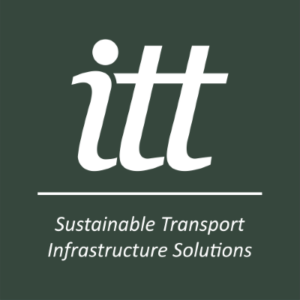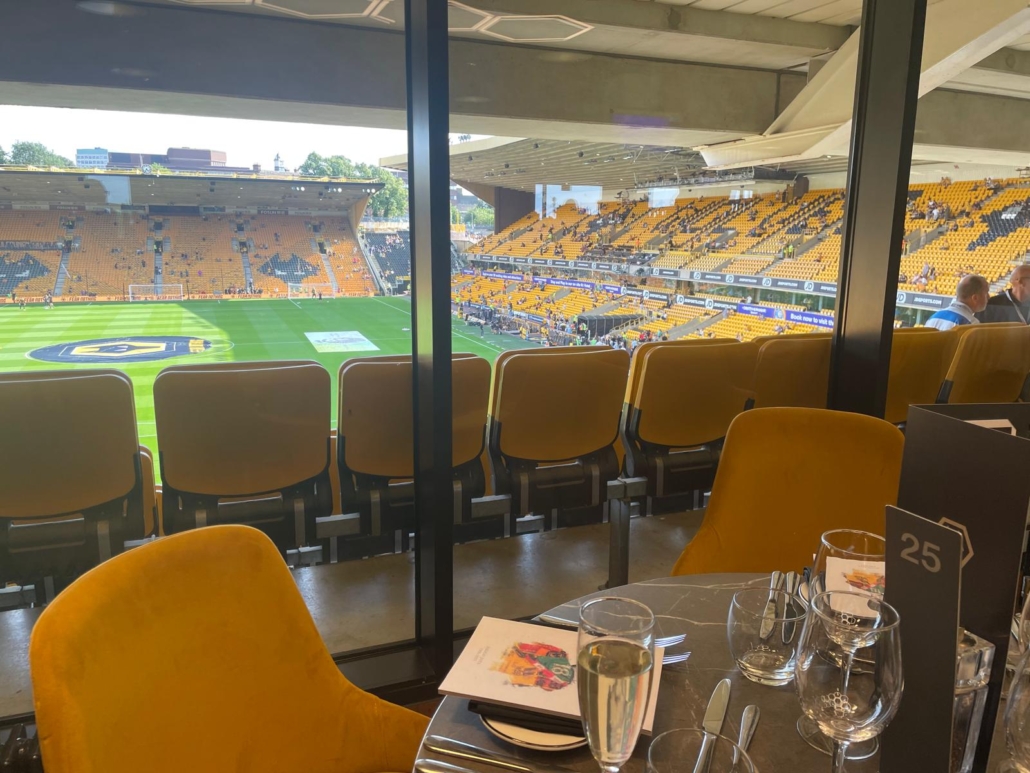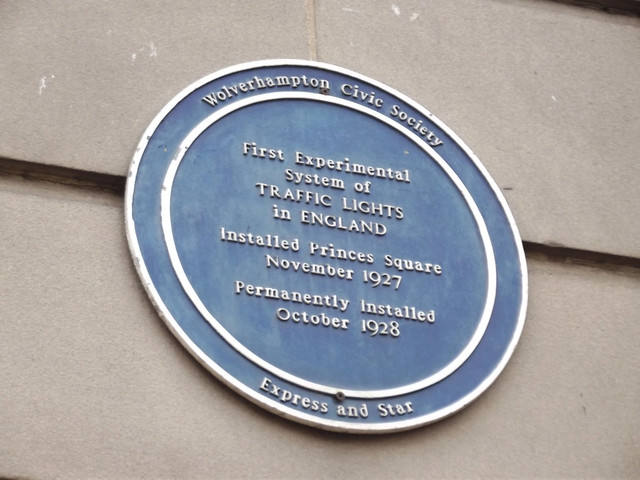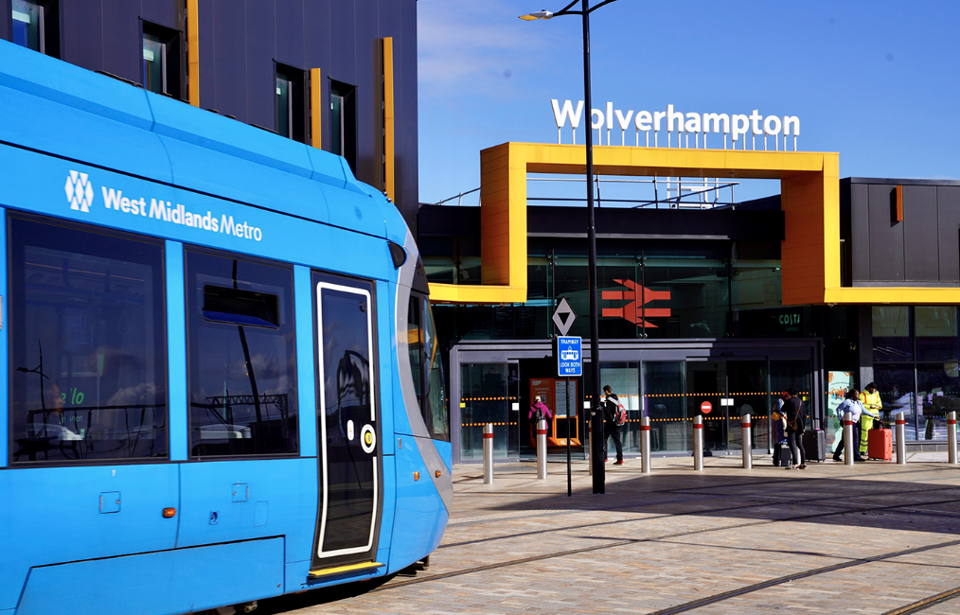Why we threw ourselves to the Wolves
It was the Covid-19 pandemic that did it. It made the previous corporate owners want to sell ITT back to the staff, and changed working patterns forever in a way that meant a large office in London was no longer desirable. The big problem for the previous ownership was that it had policies in place that meant it could not knowingly put staff or consultants in harm’s way, which meant all international travel was banned. A major problem, when all your projects are overseas and in countries where the current situation was difficult to quantify. At the same time, our parent company, with whom we shared the London Office, was going through some testing times. Its main Client was the Department for International Development (DFID), which the UK Government has disbanded and merged into the Foreign and Commonwealth Office (FCO), to the become the FCDO (you can figure out the new acronym yourself…). At the same time, the UK was passing through Brexit, so all EU projects, previously a major Client, were now off-limits. The pandemic followed, and ensured that our UK Parent company had no way of surviving. ITT, on the other hand, had a more diverse range of projects in terms of Clients, funders and project locations, and it was this diversity, that meant ITT had the possibility of surviving, but only if, it could keep its projects alive.
More....
So, the previous owners of ITT at this point, were motivated to sell ITT, since it was also likely to go under if they held onto it, which would have meant an inability to collect fees from the company debtors, and they couldn’t do that without the ability for staff to travel.
Thus, by the end of 2020, ITT changed hands and came back to being fully independent and UK-owned, following 8 years under the previous ownership. As soon as we got the company back, we started travelling again.
And as luck would have it, it transpired that other larger companies couldn’t find anyone both suitably qualified and willing to travel to work on projects, and some of those companies came to us, via word of mouth, and asked if we could help deliver their projects for them. Which we did, and still are.
With ITT now ensuring it had enough work to keep going and pay its debts, especially the huge one associated with buying ITT, we decided we were ready to reopen a new office. When in the UK, all of our team was still working from home, yes, partly due to COVID, but a more fundamental issue is that we did not have an office anymore. We had the impression of an office, i.e. a Postal Address, but no physical presence.
So we then faced a major decision, where to relocate?
Well, during the same period, the Government was implementing it’s “Levelling up” policy, that is, a series of measures designed to encourage businesses to locate, or relocate outside of the South East, and outside of London in particular. For those of you who don’t know, the UK has an economic divide in that the South East is more highly populated, with a higher cost of living but a higher economic output. Thus, the Government’s policy was designed to relocate economic activity to other parts of the country.
Given the uncertain economic and indeed social outlook at the time, we decided we needed to find somewhere that would allow us easy access to other parts of the country and all the major airports, was affordable, but also somewhere that fitted with the company values, which include provenance in the transport sector and a multi-cultural, multi-faith identity.
Enter, Wolverhampton, a medium-sized city located in the West Midlands of England.
Although not a city with a large international profile, this was not always the case, as the city was once heavily associated with manufacture and export. This included both the bicycle and motor industries, with Wolverhampton at one time manufacturing more bicycles than any other city in the world. The city also has a large Public University, which is more than 200 years old, which is also a centre of innovation. The UK’s first ever automated traffic signals were, for example, located in Wolverhampton, where they remain to this day. Some additional transport-related facts are that Wolverhampton is also the home of Tarmac, a large construction company known for producing road surfacing materials, and also working directly in road construction and maintenance across the U.K. Britain’s main passenger railway line also passes through the city, making it one of the best-connected cities in the U.K., and the M6 motorway, the U.K. busiest motorway, is also in close proximity. With an active tram system, canal network and one of the U.K.’s first Intelligent Transport Systems, the city has continued to have a strong reputation when it comes to transport.
However, with ITT being an international firm working all around the world, when we tell people where we are based, it is not the industrial heritage of the city we are most associated with, but rather the local football team – the Wolves, aka, Wolverhampton Wanderers. Why? Because the allure of English Premier League Football, wherever we travel, is the most discussed and followed export of the U.K. that we ever come across. We have had so much interest from Clients and other associates in the Premier League, that we now have VIP tickets for all home games at Molineux, which means as an associate of ITT, you too, could watch your favourite team when they come to Wolverhampton, whether that is Liverpool, Arsenal, Manchester United or Chelsea, or indeed any of the 14 teams in the league, as our guest.
Of course, like all industrial areas in the U.K., Wolverhampton suffered a major economic decline in the 1970s as manufacturing moved overseas to countries with lower rates of labour and fewer regulations, and the city struggled with its identity for a number of years. However, now in 2025, the city is going through something of a renaissance, and is attracting a high number of start-up companies in particular, allured by the excellent transport links and affordable rents. It is also the new home of the UK Government’s Ministry of Housing, Communities and Local Government, which is the first Ministry to relocate outside of London.
So, the big question…4 and a half years later, has relocating to Wolverhampton from London been worth it? Well, we can’t answer that question completely objectively since we did not stay in London, but what we can say is that our Financial Results recently came in for 2024, and we have continued to improve on the previous year’s results, every year since we relocated. Over the same period, we have more than doubled our number of staff, and the outlook for the future following the murky days of COVID and massive economic uncertainty is looking good. Perhaps it is appropriate then, that we are now based in a city whose official motto is, “Out of darkness, cometh light”.





